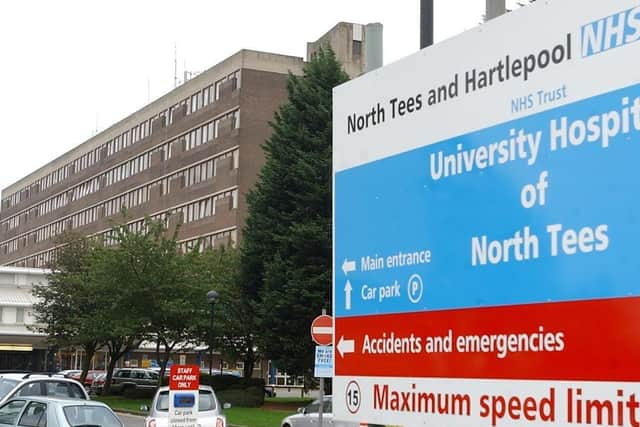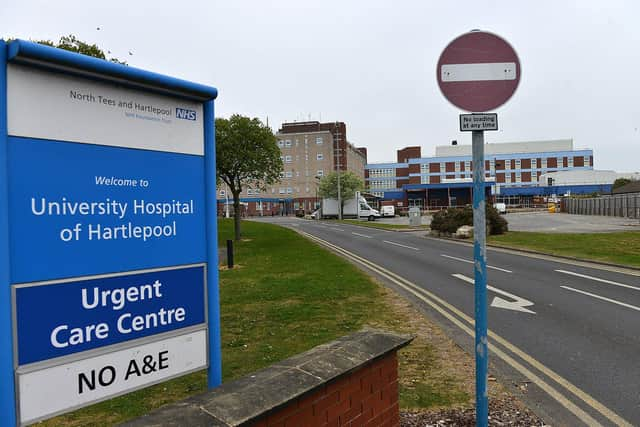Hartlepool hospital trust call after thousands attend A&E where 'nothing abnormal detected' costing £5m
and live on Freeview channel 276
NHS Digital data shows roughly 67,920 admissions had a primary diagnosis of "nothing abnormal detected" at North Tees and Hartlepool NHS Foundation Trust in 2019-20 – costing the Trust around £5.4m.
These attendances accounted for 39% of all A&E activity – the highest proportion of 137 trusts which submitted data.
Advertisement
Hide AdAdvertisement
Hide AdAt the Trust, respiratory conditions were the most common issues in 2019-20 – accounting for 10,850 emergency episodes.


The NHS says A&E is for serious and life-threatening emergencies, with patients urged to call 111 over other urgent illnesses but the Royal College of Emergency Medicine (RCEM) said many people anxious about their health have "no alternative" and added that pressures on emergency departments should not fall on the public.
A spokesperson for the Trust said: “North Tees and Hartlepool NHS Foundation Trust is here for anyone who needs our help.
“Our new combined Urgent Care and Accident & Emergency entrance sees patients quickly assessed and allocated to the most appropriate care pathway.
Advertisement
Hide AdAdvertisement
Hide Ad“The needs of our patients always come first but before visiting our Urgent Care and Accident & Emergency centre, we would always urge anyone to consider their alternatives, such as NHS 111 or calling their GP if they are able and it’s not immediately life threatening.


"We ask everyone to keep Accident & Emergency free for accidents and emergencies but to never hesitate to seek our help if required.”
But Dr Adrian Boyle, vice president of the RCEM, warned there are "many reasons" why someone could attend an emergency department and then be discharged with no serious diagnosis made.
He said: "They may attend because there is simply no alternative, or they are directed there by an external agency.
Advertisement
Hide AdAdvertisement
Hide Ad"If patients are unsure about attending A&E or if they have a non-life-threatening condition then they should call NHS 111 but crucially patients won’t know the severity of their condition without clinical expertise or examination.”
He said concern over pressures on A&E departments should not be shouldered by the public, adding that an "adequately staffed and funded" health service can meet patient and community demand.
Across all trusts in England which provided figures, £178 million was spent on 1.1 million non-urgent A&E attendances in 2019-20.
Sarah Scobie, deputy director of research at the Nuffield Trust health think tank, said, despite A&E attendances dropping "significantly" during the pandemic, those with a listed diagnosis of ‘nothing abnormal’ did not fall any further than other admission types.
Advertisement
Hide AdAdvertisement
Hide AdShe said: "This suggests that they could not be helped elsewhere in the system or still felt that A&E was the most appropriate service for them."
Ms Scobie added that the NHS has made several attempts to divert patients with less serious conditions, including encouraging patients to use the 111 service.
"This process may reduce pressure on ‘front door’ services but is unlikely to reduce admissions to hospitals from those with an urgent need for care," she said.